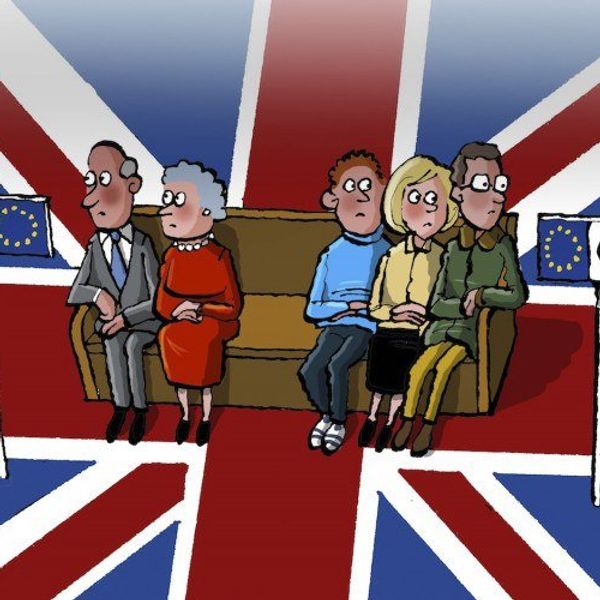Last Thursday, British voters chose to have the United Kingdom exit the European Union in a highly politicized and controversial referendum, something you may have heard of in the past couple of days. At first glance, it might seem that this only affects Europe, but that's not true. In fact, Britain's withdrawal from the European Union has severe consequences that even affect the United States. Here's the rundown on the four biggest ways in which "Brexit" affects Americans.
1. Brexit signals a victory for right-wing populists.
The most ardent supporters of the "Leave" campaign were voters of the UK Independent Party, or UKIP, a hard-line rightist party that advocates for strict controls on immigration, reduced welfare spending, and other right wing policies. In fact, UKIP has been accused of running a xenophobic and racist campaign, ranging from leader Nigel Farage's disparaging comments about Chinese to campaign posters portraying the Syrian migrant crisis as a "breaking point" for terrorists seeking to enter the UK. "Leave" supporters argued that exiting the EU would allow Britain to tighten its immigration controls (EU countries are required to allow workers from other EU countries) as well as remove "undesirables" from the population.
How does this relate to American politics? Two words: Donald Trump. While visiting Scotland, he praised the so-called Brexiteers for the very same reasons described above, claiming that the British had 'taken back' their country. Not only does the successful Leave vote thus bolster Trump's image in the US, but the Leave victory itself signals a surge in right-wing populism not just in Europe but worldwide.
2. Brexit's impact on world markets extends to America.
As the pound continues to devalue drastically following the referendum, the pound-to-dollar exchange ratio is thus at its lowest in thirty years. But what does this mean for Americans? Not much that is good. Both British business operating in America and American business operating in Britain have been hurt by the devaluing of pound, and banks have been the hardest hit. In addition, the economic uncertainty of Brexit also hurt American markets, causing the Dow to drop by more than 600 points in the day after the vote. To add insult to injury, U.S trade deals with the EU will have to be renegotiated with the UK, something which President Obama has mentioned is "at the back of the queue" concerning Great Britain. So, trade relations with the UK may very well suffer. One positive note, however, with the lowered value of the pound against the dollar, Americans wishing to travel to Britain will get more pound for dollar of their money, which makes the prospect of a summer vacation to the United Kingdom less expensive.
3. The fight against terrorism may get more complicated.
Britain and the U.S have had a close intelligence-sharing relationship for a very long time, which helps both countries' security. Prior to Brexit, this helped the EU become more safe, as well, due to the participation of the UK in EU security agreements. But with the imminent withdrawal of the United Kingdom, Europe may suffer from a lack of access to British-American security intel. In addition, as Britain's withdrawal destabilized the EU, it may even lead to a destabilization of NATO, even though both sides of the referendum advocated remaining in NATO.
4. If the UK splits, foreign policy will become a quagmire.
Seeing as Scotland and Northern Ireland voted heavily in favor of Remain, they may not take too kindly to being dragged out of the EU against their will. Scottish First Minister Nicola Sturgeon raised the prospect of a second Scottish independence referendum (the first failed in 2014 by a margin of 45 to 55 percent), saying that radically changed circumstances warranted a reconsideration of Scotland's position in the EU. Furthermore, Ireland's president, Michael Higgins, called for a referendum to rejoin Northern Ireland with Ireland. If the United Kingdom ends up splitting into separate nations, navigating foreign policy with the United States would be a sea of confusion. Would the U.S have to renegotiate every treaty? What about existing joint military operations? Would The U.S and U.K have had a close and special relationship for a long time, so hopefully these questions like these will never have to be answered. But with the reality of Brexit, they very well might have to be.





















